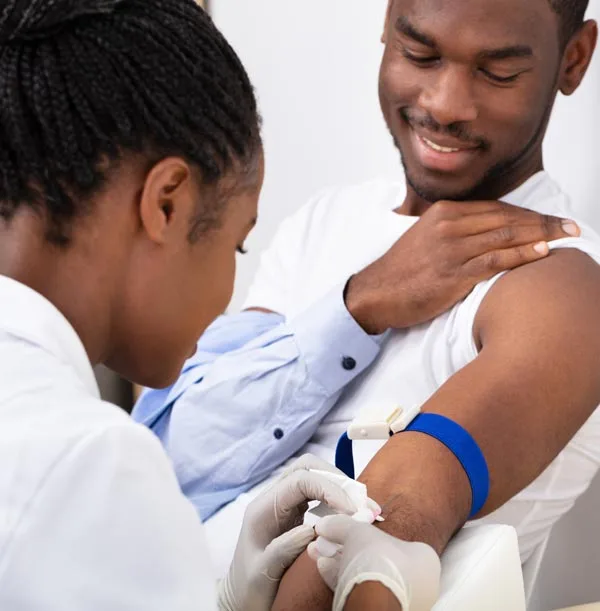Overcome Withdrawal Symptoms and Achieve Recovery from Cocaine at Ingrained
If you have found our cocaine detox resource, you likely already know the grim reality of long term cocaine use.
Cocaine abuse and addiction can have various risk factors, contributing factors, and origins. Cocaine users sometimes start using cocaine (or “coke”) as a party drug; others start using it to stay awake or alert. In many instances, people who use cocaine believe that they can stop when they want to.
Once cocaine addiction starts, this is not so easy. One of the main characteristics of cocaine addiction is being unable to stop using cocaine on your own.
Using cocaine can lead to serious health effects, especially as time goes on. The good news is that cocaine addiction treatment can help you reach long-term recovery. Most often, the first step in the addiction treatment process is to attend a cocaine detox program. So, what should you know?
If you’re looking for a cocaine detox in Georgia, you’re in the right place. Ingrained offers medical detox services in Georgia at our high-end addiction treatment center. Located in Eastman, Georgia, Ingrained Recovery is here for you or your loved one who needs treatment for cocaine addiction or any other substance use disorder.
Let’s talk about potential symptoms of cocaine withdrawal and how our cocaine detox program in Georgia can help first. Then, we’ll talk about why continued treatment matters for those overcoming cocaine abuse and what to expect in treatment at Ingrained Recovery.
Get Effective Treatment Programs at Ingrained Recovery

Overcoming Cocaine Withdrawal Symptoms in Safety
Cocaine is an intense and heavily addictive stimulant drug. Although the detox process can be uncomfortable, it is short-lived. Our detox center’s on-site team of medical professionals will help you get through it.
If you or your loved one is taking the first step toward cocaine addiction recovery, you may wonder what to expect during the withdrawal process. The cocaine withdrawal symptoms one endures can be physical or psychological and might include but aren’t limited to the following.
Does Cocaine Withdrawal Involve Physical Symptoms?
Physical symptoms of cocaine withdrawal can include but aren’t limited to the following:
- Disrupted sleep patterns
- Increased hunger
- Mood swings
- Muscle aches
- General discomfort
Other physical symptoms of cocaine detox may include but aren’t limited to yawning and slowed psychomotor activity.
The Well Known Psychological Symptoms of Cocaine Withdrawal
The mental or psychological symptoms of cocaine withdrawal can be just as serious or severe as the physical symptoms. Here are some of the most common psychological symptoms of cocaine or crack cocaine withdrawal.
- Intense cravings for cocaine
- Vivid or unpleasant dreams
- Depression
- Paranoia
Cocaine detox in Georgia at Ingrained Recovery can help you through both physical and psychological cocaine withdrawal symptoms such as depression.
How Our Cocaine Detox Center Can Help
When you undergo cocaine detox at Ingrained Recovery, staff are by your side to help you through the physical and psychological symptoms of withdrawal you might experience. Cravings can be intense when you first cease cocaine use, so inpatient detox also prevents you from relapsing in the beginning stage of addiction recovery or treatment.
Services provided by medical staff in cocaine detox may include but aren’t limited to:
- Medical supervision and testing (e.g., blood tests and tests for cardiovascular functioning)
- Medications (to reduce physical or mental withdrawal symptoms, like trouble sleeping)
- Other efforts toward physical stability (e.g., ensuring adequate hydration)
Although medical detox is an integral foundation for addiction treatment for many people, it usually only lasts for 1-2 weeks and is designed primarily to help you achieve initial sobriety. To overcome cocaine addiction, it’s highly recommended that you continue treatment through an inpatient or outpatient treatment program after completing a successful detox program.

What to Expect in Cocaine Addiction Treatment at Ingrained Recovery
Ingrained Recovery offers inpatient and detox programs for individuals recovering from cocaine addiction and addictions to nearly all other substances. Here’s a little bit about what you can expect in cocaine addiction treatment at Ingrained Recovery.
Luxury Facility and Amenities
During the detox process and beyond, your environment matters. When you choose Ingrained Recovery for cocaine detox in Georgia, you will be surrounded by nature. Our staff members create a caring environment, and our facilities are clean, comfortable, and designed to make you feel at home.
Residential treatment clients build healthy daily routines while in an addiction treatment program at our facility. Throughout the recovery process, you will engage in a combination of group therapy, individual therapy, and other treatments.
Get Effective Cocaine Detox and Rehab Options at Ingrained
Evidence-Based Cocaine Addiction Treatment

Ingrained Recovery provides detailed, individualized treatment plans that consider your personal needs and recovery journey. We offer various evidence-based practices, such as behavioral therapies and motivational therapies, known to treat addiction and mental health concerns effectively. Approaches used at Ingrained Recovery include but aren’t limited to the following:
- Eye movement desensitization and reprocessing
- Rational emotive behavior therapy (REBT)
- Equine-assisted therapy
- Cognitive behavioral therapy
- Dialectical behavioral therapy
- Motivational interviewing
- Adventure therapy
- Family therapy sessions
- 12-step groups
Vocational therapy, physical activity, and medication management services are a few other treatments offered at our rehab center. Some treatments are held in group settings, while others take place one-on-one with your assigned individual therapist.
We Accept Many Forms of Health Insurance Coverage
Your health insurance plan can help make cocaine detox and addiction treatment accessible. Ingrained Recovery works with a broad range of different health insurance companies and accepts many insurance plans. To confirm treatment coverage at our facility, call our admissions line. Our staff members are here to help you find solutions.
Get Evidence Based Help for Co-Occurring Disorders at Ingrained
Suppose you or your loved one looking for a cocaine detox center has been through a traumatic event or lives with a mental health condition like anxiety or depression. In that case, Ingrained Recovery is an ideal treatment location. We offer dual-diagnosis substance abuse treatment programs for people facing addiction and one or more additional co-occurring mental health concerns or conditions.
Dual-diagnosis treatment is connected to better addiction treatment outcomes when applicable, including an increased chance of long-term recovery. All Ingrained Recovery clients get an individualized treatment plan informed by their individual needs, including concurrent mental health conditions.
Each Client Receives Custom Aftercare Planning and Support
Before you leave Ingrained Recovery, your treatment team will help you create a personalized aftercare plan. That way, you’ll have both the coping skills from treatment and a plan in place to aid your continued success and sobriety following detox or inpatient rehab.
For example, we may provide referrals to an intensive outpatient program, outpatient therapy, or other services in your area that provide continued support post-treatment.

The Pressing Need for Effective Cocaine Addiction Treatment in GA
Cocaine addiction can impact anyone. And, unfortunately, not everyone who lives with cocaine addiction gets the help they need. 19.4% of the US population aged 12+ needed some form of addiction treatment in 2022, with the most recent data available.
Statistics also suggest that a staggering number of those people — well over 90% — need but do not receive substance abuse treatment that can support lasting recovery.
Organizations such as the Georgia Council for Substance Abuse and the team at Ingrained are working to make treatment more accessible in the Peach State.
Call our inpatient detox center and addiction rehab now to get a free assessment, book a tour, or find out more about how Ingrained Recovery can help you or your loved one overcome substance abuse.
Call Ingrained Recovery for Help With Cocaine Addiction
If you’re looking for a cocaine addiction treatment program in Georgia, contact Ingrained Recovery today. We can help you start the admissions process, verify your insurance benefits, or find ways to help someone you care about who is facing cocaine abuse.
To get in touch with Ingrained Recovery, call the admissions line on our website for a confidential consultation now!
Up To 100% of Rehab Costs Covered By Insurance
FAQs Regarding Cocaine Detox in Georgia
What is a typical cocaine withdrawal timeline?
Some people think that cocaine withdrawal can only begin when you stop using cocaine entirely. In reality, people who use cocaine in high doses can start experiencing cocaine withdrawal symptoms when they either stop or decrease cocaine use.
Cocaine withdrawal symptoms typically start and end relatively quickly. Usually, you will start to notice withdrawal symptoms within 24 hours of your last use. Although everyone is different, people often start to stabilize physically within about a week or less of the onset of acute (initial) withdrawal symptoms.
Some psychological, mental, or emotional symptoms of cocaine withdrawal, like depression, can last longer; this is called protracted withdrawal. A cocaine addiction treatment center like Ingrained Recovery can help you through both acute and protracted withdrawal symptoms.
